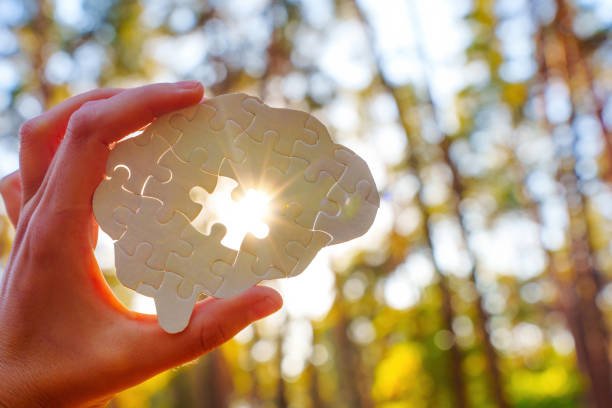Are you feeling overwhelmed by the constant demands of modern life? Do racing thoughts and persistent worries keep you up at night? You’re not alone. In today’s fast-paced world, it’s easy to get caught up in the whirlwind of the past and future, often at the expense of our present well-being. But what if there was a simple yet powerful way to navigate these challenges and cultivate inner peace?
Enter mindfulness – a practice that involves intentionally focusing your attention on the present moment without judgment. It’s about becoming aware of your thoughts, feelings, bodily sensations, and surrounding environment as they arise, without getting carried away by them. While it might sound simple, the benefits of incorporating mindfulness into your daily life for your mental health can be truly transformative.

Table of Contents
Why Mindfulness Matters for Your Mental Well-being
In an era where stress and anxiety seem to be the norm, mindfulness offers a refreshing and effective antidote. It’s not about emptying your mind or achieving a state of perpetual bliss. Instead, it’s about cultivating a different relationship with your thoughts and feelings – one of acceptance and non-reactivity. This shift in perspective can have a profound impact on various aspects of your mental health.
Reducing Stress and Anxiety
One of the most well-documented benefits of mindfulness is its ability to reduce stress and anxiety. When we’re constantly worrying about the future or dwelling on the past, our bodies trigger the stress response, releasing hormones like cortisol. Over time, chronic stress can take a significant toll on our physical and mental health.
Mindfulness practices, such as mindful breathing or body scan meditations, help us to become more aware of the physical sensations associated with stress and anxiety, such as a racing heart or tense muscles. By simply observing these sensations without judgment, we can begin to create space between ourselves and our reactions. This allows the intensity of the stress response to subside naturally.
Furthermore, mindfulness helps us to identify and challenge negative thought patterns that often fuel anxiety. Instead of getting caught up in catastrophic “what if” scenarios, we learn to observe these thoughts as just that – thoughts – rather than facts. This can significantly reduce the power they hold over our emotions.
Improving Focus and Concentration
In today’s digitally saturated world, our attention spans are constantly being pulled in multiple directions. Notifications, emails, and social media feeds compete for our focus, making it difficult to concentrate on the task at hand. Mindfulness training can help to sharpen our attention and improve our ability to stay present.
By regularly practicing mindfulness, we strengthen the neural pathways in our brain that support attention regulation. Just like any muscle, our ability to focus improves with consistent exercise. Mindful activities, such as paying attention to the sensations of walking or eating, train our minds to stay anchored in the present moment, reducing mind-wandering and improving concentration in all areas of our lives.
Enhancing Emotional Regulation
Emotions can be powerful forces, and sometimes they can feel overwhelming. Mindfulness provides us with the tools to navigate our emotional landscape with greater awareness and ease. Instead of trying to suppress or avoid difficult emotions, mindfulness encourages us to acknowledge and accept them as they arise.
By observing our emotions without judgment, we can learn to understand their underlying causes and triggers. This awareness allows us to respond to our emotions in a more skillful and less reactive way. For example, instead of lashing out in anger, we might notice the physical sensations of anger arising and choose to pause and respond more thoughtfully. This ability to regulate our emotions effectively is crucial for maintaining healthy relationships and overall emotional well-being.
Boosting Self-Awareness and Insight
Mindfulness cultivates a deeper sense of self-awareness by encouraging us to pay attention to our inner experiences – our thoughts, feelings, and bodily sensations – without judgment. This non-judgmental observation allows us to gain valuable insights into our patterns of thinking, feeling, and behaving.
As we become more aware of our habitual reactions and tendencies, we gain the opportunity to make conscious choices about how we want to respond to different situations. This increased self-awareness can lead to greater self-compassion, acceptance, and a stronger sense of authenticity.
Fostering Compassion and Empathy
Mindfulness practices often extend beyond focusing on our own inner experience to include cultivating compassion and empathy for others. By recognizing our shared humanity and the common struggles we all face, mindfulness can help to break down barriers and foster a greater sense of connection.
Practices such as loving-kindness meditation involve directing feelings of warmth, kindness, and goodwill towards ourselves, loved ones, and even those with whom we have difficulties. These practices can help to reduce feelings of isolation and promote a more compassionate and understanding outlook on life.
Practical Ways to Integrate Mindfulness into Your Life
The beauty of mindfulness is that it doesn’t require any special equipment or a significant time commitment. There are many simple ways to weave mindfulness into your daily routine.
Mindful Breathing
This is a foundational mindfulness practice that can be done anywhere, anytime. Simply bring your attention to the sensation of your breath as it enters and leaves your body. Notice the rise and fall of your chest or abdomen. When your mind wanders (and it will!), gently redirect your attention back to your breath. Even a few minutes of mindful breathing can help to calm your mind and reduce feelings of stress.
Body Scan Meditation
This practice involves bringing your awareness to different parts of your body, noticing any sensations that arise without judgment. You can start with your toes and gradually move your attention up through your feet, legs, torso, arms, hands, neck, and head. This practice can help you to become more aware of physical sensations and release tension. You can find guided body scan meditations online or through mindfulness apps.
Mindful Walking
Turn your daily walk into a mindfulness practice by paying attention to the sensations of walking – the feeling of your feet on the ground, the movement of your body, the sights and sounds around you. Notice each step without judgment, and gently redirect your attention back to the present moment whenever your mind wanders.
Mindful Eating
Bring awareness to the experience of eating. Notice the colors, textures, smells, and tastes of your food. Eat slowly and savor each bite. Pay attention to the sensations in your body as you eat. This practice can help you to develop a healthier relationship with food and improve your digestion.
Integrating Mindfulness into Daily Activities
You can bring mindfulness to almost any daily activity, such as washing dishes, brushing your teeth, or listening to music. The key is to focus your attention fully on the present moment and engage all your senses.
Getting Started with Mindfulness
If you’re new to mindfulness, it’s best to start small and be patient with yourself. Here are a few tips to help you get started:
- Start with short sessions: Even 5-10 minutes of mindfulness practice a day can be beneficial. Gradually increase the duration as you feel more comfortable.
- Find a quiet place: Choose a place where you can sit or lie down without distractions.
- Be kind to yourself: Your mind will wander – this is normal. When you notice your mind has strayed, gently guide your attention back to your chosen focus without judgment.
- Use guided meditations: There are many excellent guided meditations available through apps like Calm (https://www.calm.com/) or Headspace. These can be a helpful way to learn different mindfulness techniques.
- Be consistent: Like any skill, mindfulness takes practice. Aim for regular practice, even if it’s just for a few minutes each day.

Conclusion: Embracing the Present for a Brighter Mental Future
Mindfulness is more than just a trend; it’s a powerful tool that can significantly enhance our mental health and overall well-being. By cultivating present moment awareness, we can learn to navigate stress, anxiety, and challenging emotions with greater ease, improve our focus and concentration, and foster a deeper sense of self-awareness and compassion.
The journey to a calmer, more balanced life begins with a single breath. By taking small steps to integrate mindfulness into your daily routine, you can unlock the transformative power of the present moment and pave the way for a brighter, more fulfilling future.
Ready to Embrace the Benefits of Mindfulness?
Start your mindfulness journey today! Explore guided meditations, try mindful breathing exercises, or simply take a few moments each day to tune into your senses. Discover the profound impact that present moment awareness can have on your mental health and well-being.
Take the first step towards a calmer, more focused you – even just five minutes of mindful breathing can make a difference.